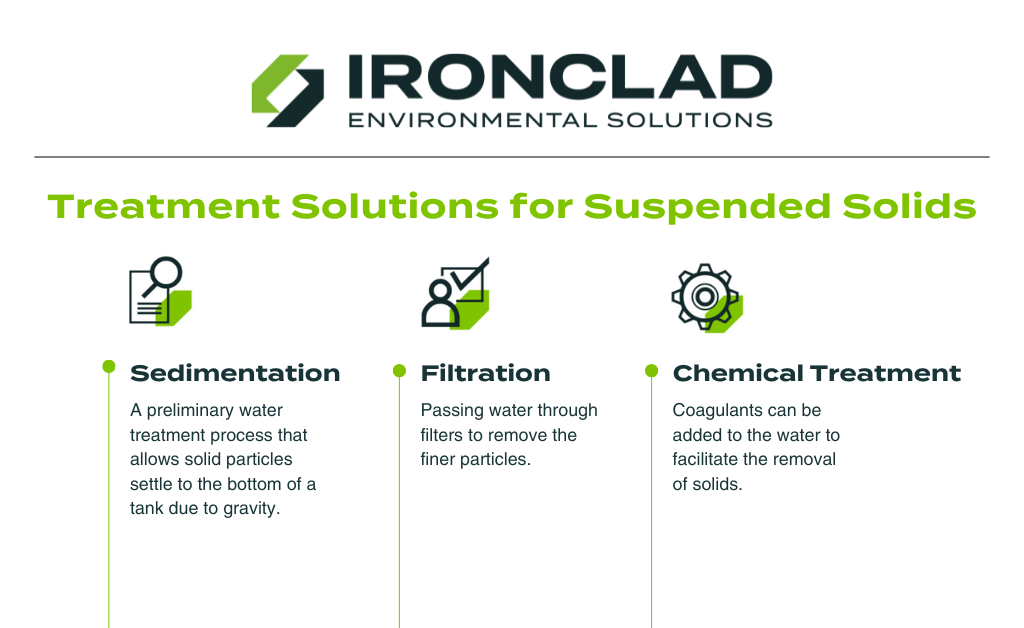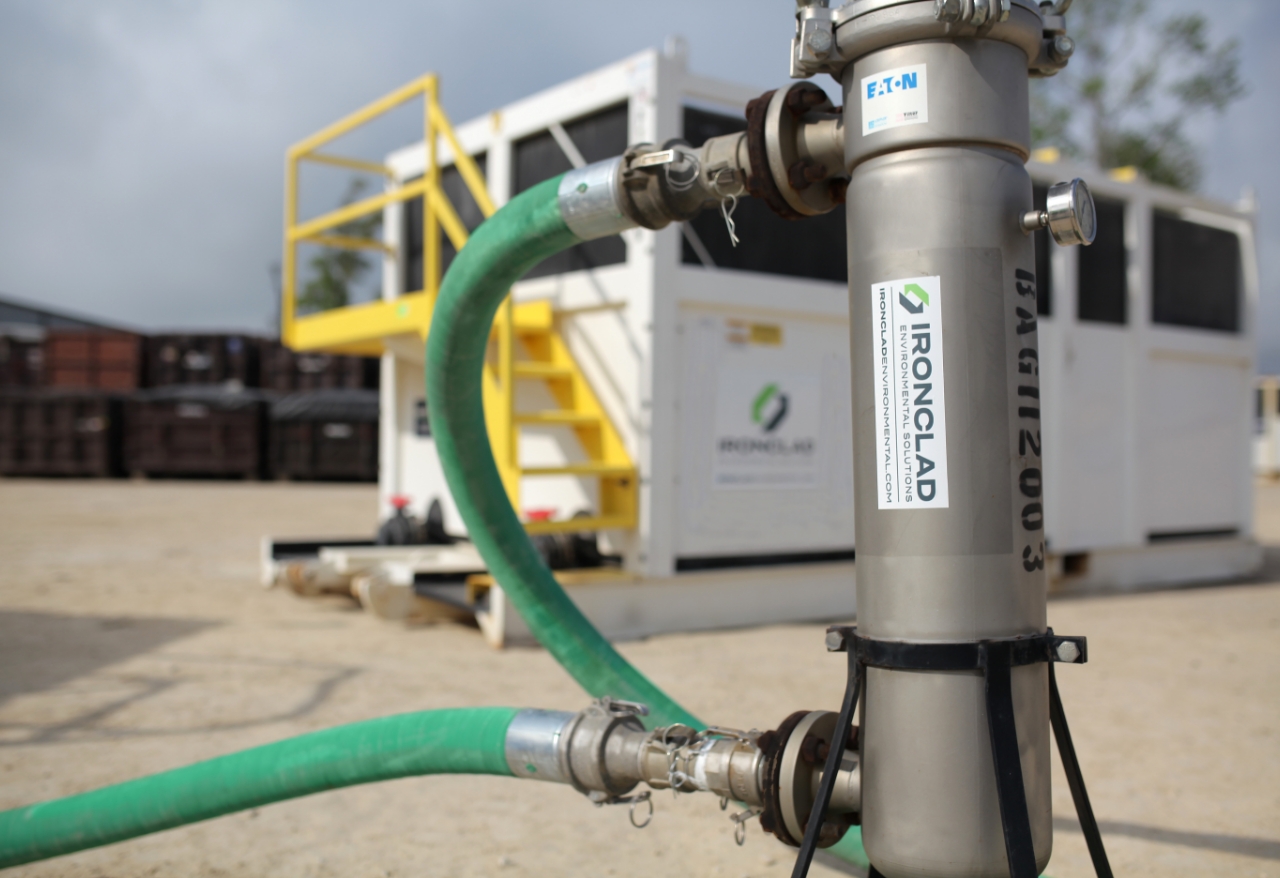Ensuring Efficiency and Longevity through Boiler Feed Water Treatment
Boiler feed water is essential for generating steam in boiler systems, a key component in various industrial operations. The quality of this water directly affects boiler efficiency, as impurities can lead to scaling, corrosion, and other costly issues. Ensuring that boiler feed water is meticulously treated and maintained is crucial for optimal boiler performance and productivity.
Understand the Role of Boiler Feed Water and Suspended Solids
Boiler feed water is the water that is fed into a boiler to produce steam, which is then utilized for processes like heating, power generation, and manufacturing. Common contaminants in boiler feed water include suspended solids, dissolved solids, and organic material, such as:
- Iron
- Copper
- Calcium
- Magnesium
- Aluminum
- Cations
- Anions
- And more
These impurities typically come from the environmental factors in the process itself and the makeup water sourced from rivers, reservoirs, or groundwater, which may carry natural contaminants or pollutants from industrial runoff.
Boiler feed pumps are typically multistage pumps that handle high pressures required in boiler operations. They help deliver the treated water into the boiler system at the required flow rate and pressure, further supporting efficient steam generation. Although we don’t carry these specific pumps in our rental fleet, we provide filtration solutions.
Impact on Boiler Efficiency and Operation
These suspended solids and other contaminants can seriously affect the performance of a steam boiler. Due to these contaminants, scaling on the boiler’s internal surface can reduce heat transfer and increase fuel consumption. These pollutants can also cause significant wear and tear on boiler components, leading to frequent maintenance needs and potential operational inefficiencies.
Challenges in Managing Boiler Feed Water
Efficiently managing boiler feed water is crucial for maintaining the longevity of boiler systems. However, there are several challenges that can impact overall system performance.
One of the main challenges is the removal of various impurities, such as dissolved oxygen, carbon dioxide, and sludge.
- Dissolved Gasses –> Oxygen and carbon dioxide in water can lead to severe corrosion of the boiler’s internal components, which can sometimes cause equipment failures, leaks, and steam quality issues.
- Sludge –> Sludge is typically composed of minerals and particulate matter that settle out of untreated water. Accumulations of sludge can obstruct water flow and reduce heat transfer efficiency.
Removing these impurities requires precise treatment processes, which can involve either eliminating the dissolved gases or using chemical treatment to manage sludge.
Consequences of Inadequate Management
The consequences of not addressing these challenges correctly can be significant.
Corrosion
Left-over dissolved oxygen in the make-up water can cause boiler corrosion. This leads to the deterioration of metal inside the boiler system, which compromises structural integrity and can cause leaks or failures.
Scaling
Mineral deposits from untreated water can form scaling on the heat transfer surfaces, which drastically reduces efficiency. This build-up is often caused by impurities in the water, such as calcium, iron, aluminum, etc.
Thermal Shock
This reaction can occur when cold water enters a hot boiler system. The greater the temperature difference between the feed water and the boiler, the higher the potential for boiler failure.
Increased Maintenance Costs
To deal with the effects of scaling and corrosion, it’s important to conduct frequent maintenance and repairs. These maintenance operations often require downtime, which can disrupt the project and reduce output.
In the long term, challenges like these can shorten the lifespan of boiler feed water tanks. Addressing these issues through comprehensive water treatment and regular system maintenance is essential for preserving efficiency and functionality. This proactive approach not only protects the equipment itself but also optimizes the cost-efficiency and reliability of the entire operation.

Treatment Solutions for Suspended and Dissolved Solids
Treating boiler feed water is a key component for the safe and efficient operation of the boiler system. Several treatment methods are used to clean up suspended solids and other contaminants found in boiler feed water, each designed to remove different impurities.
- Sedimentation: A simple physical water treatment process that allows solid particles to settle naturally at the bottom of a tank due to gravity. It’s typically used as a preliminary treatment method that offers energy savings, reducing the load on subsequent filtration systems.
- Filtration: Passing water through filters to remove finer particles. Different types of filters, such as sand filters or free-fiber cloth filters, are used depending on the nature and size of the suspended solids.
- Chemical Treatments: Various treatment chemicals can be added to the water to facilitate the removal of solids. Coagulants can be used to aggregate smaller particles into larger ones that are easier to filter out.
Together, these methods create a robust system for purifying boiler feed water, which is crucial for maintaining the operational integrity of filtration and boiler feed water pumps.
Best Practices for Boiler Feed Water Maintenance
Maintaining the quality of boiler feed water is essential for ensuring the smooth operation and longevity of their systems. Following these best practices can enhance system performance and prevent costly downtimes.
- Regular Monitoring: Continuous monitoring of feed water quality is crucial. This includes checking pH levels, hardness, and the presence of specific contaminants. This helps detect any deviations from normal water levels early on.
- Scheduled Cleanings: Build-up of contaminants like scale, sludge, and algae can lead to equipment failure. Regularly scheduled cleanings help maintain the cleanliness of the boiler and its associated components, ensuring efficient operation.
- Preventative Maintenance: Implementing a preventative maintenance schedule for all water treatment equipment helps ensure that they function correctly. This includes regular inspections and servicing.
Importance of Monitoring Water Quality
The periodic management of water quality is crucial for the effective operation of boiler systems. Regular testing helps ensure that water meets safety standards and helps identify potential issues early. Depending on the feed water quality and boiler type, it might be necessary to replace the boiler water. This helps prevent the accumulation of impurities that can lead to scaling and corrosion.

How Ironclad Environmental Assists in Boiler Feed Water Treatment
As the largest specialty containment company, we provide industry-leading expertise and solutions in process water treatment. We provide our customers with essential filtration assets, including pumps, hoses, pipes, water storage tanks, roll-off boxes, and stainless steel tankers, necessary for the initial stages of water treatment. These assets help customers remove suspended solids from raw water sources, preparing them for subsequent processes that eliminate minerals and ions. This preparation is crucial for producing the pure, fresh water that industrial operations need.
Expert On-Site Guidance
Beyond providing rental equipment, our team offers on-site guidance to address and solve specific project challenges. We work closely with our customers, ensuring that every aspect of the water treatment system is optimized for success.
Partner with Ironclad Environmental
At Ironclad Environmental, we are always committed to your success and safety. Contact our team today for the most reliable specialty containment solutions in the industry!
Resources:
- Ironclad Environmental Solutions. https://ironcladenvironmental.com/
- Lenntech Water Treatment. https://www.lenntech.com/applications/process/boiler/boiler-feed-water.htm